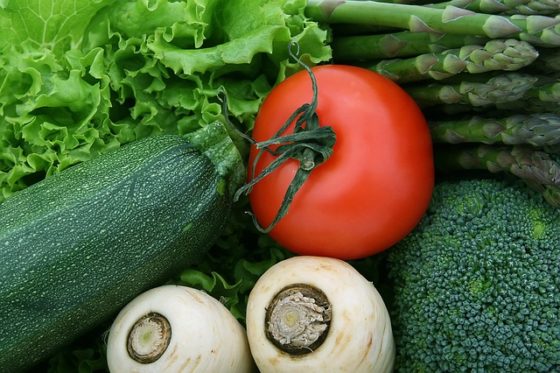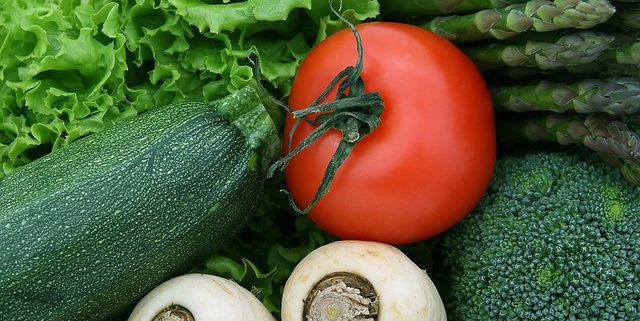Foods For Fertility: Eating For (Hopefully!) Two

There are plenty of medical fertility treatments available – in vitro fertilization is one of the most well-known and there are also other medications and procedures that can encourage pregnancy. But these options can be invasive and expensive. They may also present health risks to women with certain medical conditions and other people simply don’t want to use that kind of treatment. The good news is that there may be other ways to help conception along – like eating certain foods for fertility.
Contents
What Types Of Infertility Are Affected By Diet?
There are many different potential causes of infertility. Some are physical problems, like a blocked fallopian tube or scarring in the uterus. Certain medical conditions can also affect fertility – polycystic ovary syndrome, endometriosis, or primary ovary insufficiency, for example. Eating a healthy diet may improve the symptoms of some of these conditions, but is unlikely to have much effect on fertility.
The type of infertility most likely to respond to diet is that caused by irregular or infrequent ovulation. Ovulatory infertility accounts for about 25% of cases of infertility in the US. It’s typically associated with hormonal imbalances or irregularities – and may respond to diet.
That said, the kinds of foods that are good for fertility are really healthy and it’s worth trying this diet out no matter the cause of any fertility troubles – it can only help.
Fertility Starts With A Healthy Mom
There’s no “magic bullet” food that will send your fertility skyrocketing, but what you eat does have a serious impact on the way your body functions. That, in turn, impacts your fertility.
Foods for fertility start with foods for a healthy body in general. That means eating plenty of vegetables and fruits, whole grains, and lean proteins to maintain a healthy weight. Being overweight or underweight can cause irregular hormonal and menstrual cycles and can stop your ovaries from releasing eggs. In addition, obesity is linked to higher rates of miscarriage, gestational diabetes, preeclampsia, high birth weight, and the need for a cesarean section during delivery. So getting to a health body weight and maintaining your fitness is important not just for fertility, but for a healthy pregnancy after you conceive.
The Best Foods For Fertility
Aside from a generally healthy diet, there are certain specific foods that can improve (or diminish) your chances of getting pregnant. A study from Harvard followed 18,000 women and tracked their diets to determine what foods affected their fertility, focusing on ovulatory infertility.
They found that unsaturated vegetable oils (monounsaturated and polyunsaturated fats) can increase your body’s insulin sensitivity and reduce inflammation – both of which promote fertility. In a similar vein, slowly-digested carbs with plenty of fiber help regulate your blood sugar and insulin levels, which can improve fertility. They also found that getting plenty of iron can increase fertility. And taking multivitamins with extra folic acid is important to prevent neural tube defects during pregnancy, but also seems to boost your fertility before pregnancy.
What Not To Eat
There are a couple of fertility-busters that may surprise you. First, the study found that sugared sodas are linked to infertility. And caffeine in general seems to negatively impact fertility; it may reduce the function of the muscles around your fallopian tubes that push the egg down to the womb.
And here’s a big one: skim milk and other low-fat dairy products. The study found that women that ate 2 or more portions of low-fat dairy per week had an 85% higher risk of infertility due to ovulatory problems than those that ate low-fat dairy less than once a week. In addition, women that full-fat dairy products more than once a day had a 25% reduced risk of infertility.
A Shopping List
What does all that shake out to in actual dietary terms? Eat plenty of nuts, seeds, beans, and whole grains. You should also eat plenty of fruits and vegetables, including spinach, tomatoes, and beets for iron. Cold water fish (like salmon) is a great source of protein and unsaturated fat. However, animal protein in general can negatively impact fertility, so consider switching out one serving of meat a day for vegetable protein like beans or tofu. And drink plenty of water – dehydration is never good for you and can affect your fertility. A little coffee, tea, and alcohol are fine in moderation, as long as you keep up with the water. Finally, hit the full-fat dairy! Whole milk, full-fat yogurt, and even ice cream can all help with ovulatory infertility. Of course, make sure that you’re still maintaining a health weight and exercise regimen – all ice cream all the time isn’t good for anyone.
In addition to that healthy diet, you’ll want to avoid caffeine, sugared sodas, refined carbs (anything with sugar added), trans fats (found in many baked goods, margarine, shortening, fried foods), and skim milk.
Hungry Yet?
Foods for fertility aren’t just an old wives’ tale (although there are plenty of myths about particular foods and herbs that supposedly make you instantly, spectacularly fertile). If you’re struggling with infertility, you might want to try this kind of diet out – it has no side effects and it’s really healthy regardless. It’s also a great diet during your pregnancy, as long as you keep an eye on the mercury levels in the fish.
That said, remember that diet is only shown to impact ovulatory infertility and even then, of course, there are no guarantees. If you’re struggling to conceive, you should see your doctor to determine the specific cause and talk about potential treatment options.
In any event, it turns out that what you put in your belly can actually affect what grows in your belly! So head to the supermarket and stock up on some foods for fertility.








Leave a Reply
Want to join the discussion?Feel free to contribute!